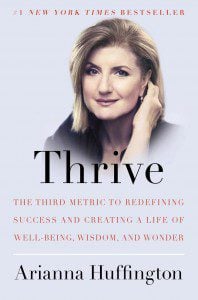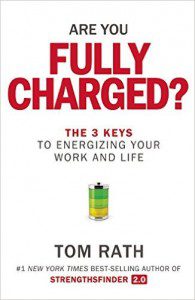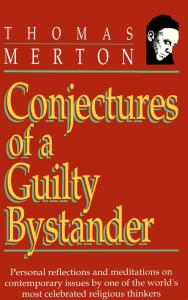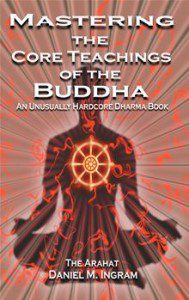A colleague reminded me recently of a quote from Zora Neale Hurston’s novel Their Eyes Were Watching God that is resonant with this time of year: “There are years that ask questions and years that answer.” What was 2014 for you? “A Year of Questions,” “A Year of Answers,” or somewhere in between?
From a different perspective, the online magazine Slate spent last year tracking what various people were outraged about. If you follow the news regularly, it’s probably not surprising to hear that there is a lot of umbrage-taking in our culture. But it is nonetheless stunning to see every day of 2014 connected to a story about which one or more groups were incensed. And a fair percentage of the stories are what some pundits call “fake outrage”: exaggerated anger, exploiting someone’s misstatement to score partisan political points.
What does 2015 hold in store for you? Will it be a “Year of Questions,” “A Year of Answers,” “A Year of Outrage”? You can likely think of other overarching themes that may connect more with your particular situation in life. But I would like to invite you to consider one other way of being in the world that you can intentionally choose for 2015 and beyond. What would it look like for 2015 to be a “Year of Well-being”? For example, what difference might it make for you to regularly set an intention for yourself in 2015 based on Buddhist loving-kindness meditation: “May I be filled with loving-kindness. May I be peaceful and at ease. May I be well.” And then to extend that intention to anyone nearby: “May you be filled with loving-kindness. May you be peaceful and at ease. May you be well.” And finally to all beings: “May we be filled with loving-kindness. May we be peaceful and at ease. May we be well.” Admittedly, there is truth in the bumper sticker adage that, “If you’re not outraged, you’re not paying attention.” But how might your relationship to other people and yourself change this next year if you invested equally as much time and energy in cultivating well-being as many people do in stoking outrage?
 Along these lines, I heard a interesting interview with Arianna Huffington, the founder of the online media website The Huffington Post, about the motivation behind writing her new book Thrive. Her wake-up call came in 2007 when she collapsed from exhaustion, hitting her head on the corner of her desk, cutting her eye and breaking her cheekbone in the process. After extensive medical tests, it turned out the only thing wrong with her was profound sleep deprivation (1).
Along these lines, I heard a interesting interview with Arianna Huffington, the founder of the online media website The Huffington Post, about the motivation behind writing her new book Thrive. Her wake-up call came in 2007 when she collapsed from exhaustion, hitting her head on the corner of her desk, cutting her eye and breaking her cheekbone in the process. After extensive medical tests, it turned out the only thing wrong with her was profound sleep deprivation (1).
She had founded The Huffington Post two years earlier in 2005, and to keep up with its explosive growth, she had been “working eighteen hours a day, seven days a week.” Outwardly, she seemed like the ideal of success and had been chosen by Time magazine “as one of the world’s 100 Most Influential People.” In terms of “money and power,” she was successful. But she writes that she was “not living a successful life by any sane definition” (2). And collapsing was a loud wake-up call.
The term “wake up call” is deeply resonant with Buddhism. The word “Buddha” is a title that means “Awakened One” that was given to the prince-turned-spiritual teacher Siddhartha Gautama. For the historical Buddha, his wake up calls came when he wandered out of the walled gardens of his palace and for the first time encountered poverty, sickness, and death. And he began to seek a different sort of life. Like Huffington, the historical Buddha in his childhood seemed to have it all from the perspective of money and power. But he came to see that there is much more to living a good life than money and power alone.
Money and power are important if we’re going to change the world, but if we are to truly thrive and flourish as human beings, we must take into account not only the “bottom line” of profit, but also additional factors such as what some commentators call the “triple bottom line of “people, planet, and profit.” For Huffington, in addition to money and power as measures of success, she has in the years since her wake-up call identified a handful of “third metrics” that have served as touchstones for her as she has studied people who are not burned-out and exhausted, but instead thriving. For Huffington, these “third metrics” are well-being, wisdom, wonder, and giving.
For this post, I am primarily limiting myself to the first of that list: well-being. And in consulting with experts, Huffington has identified three steps that anyone can begin experimenting with immediately to increase well-being. The first as you can probably guess from her wake up call story is to get more sleep. That could include going to bed earlier or taking a short nap in the early afternoon if your schedule and job allows for a siesta. For on-the-job napping, I have friends, who keep a yoga mat in their office, which they use to catch a twenty-minute power nap with the office door locked (111). Because many of us have less control over our first meeting of the day, for going to bed earlier, Huffington recommends starting with setting an alarm to remind yourself to go to bed just thirty minutes earlier, then work back from there until ideally you find yourself waking up in the morning before your alarm clock feeling refreshed (82). And here’s a “pro-tip”: if you put that reminder alarm to go to bed early in your bedroom, then when you get up to turn off the alarm, that “at least gets you in the right room at the right time” (84).
Personally, I stay busy most of the time, but one of my priorities has always been getting 7-8 hours of sleep a night, and I take a twenty-minute power naps in the afternoon when I can:
As Dr. Michael Rosen, chief wellness officer of the Cleveland Clinic, put it, “Sleep is the most underrated health habit.” …There’s practically no element of our lives that’s not improved by getting adequate sleep. And there is no element of life that’s not diminished by lack of sleep…. Our creativity, ingenuity, confidence, leadership, and decision making can all be enhanced simply by getting enough sleep. [Doctors at Harvard Medical School’s Division of Sleep Medicine add that] “Sleep deprivation negatively impacts our mood, our ability to focus, and our ability to access higher-level cognitive functions. (75)
Huffington’s personal experience and research have led her to become a self-described “sleep-evangelist.”
And after getting more sleep, her second step is getting more exercise. Again, start simple if you need to: take the steps instead of the elevator, add a walk in the morning, afternoon, or evening, and build up from there. Exercise, as study after study shows is not only good for our longterm health, but also a huge stress reliever and sleep aid. You could even experiment with the new “Super-Short Workout” Fitness trend, which is endorsed by The New York Times.
Huffington’s third step is to meditate, starting with five minutes and building up to twenty (or more) minutes a day. You can start even more simply by introducing some contemplative silence into another part of your day: turn off the radio for some or all of your commute, take a walk or exercise without listening to an iPod and allow that silence to be your gateway to meditating more. For details, there are some links to free beginner’s guides to meditation on the UU Buddhist webpage of the congregation I serve.
I also appreciate that meditation is the third of Huffington’s three steps. Over the years when people have come to my office asking for advice about meditation, by far the most common problem people have named is that when they sit down to try and meditate, they find themselves falling asleep. My response is that your body is telling you that before learning to meditate, you need to get more sleep. Adequate rest is step one. And exercise is often an important intermediate step because it gets us out of our “monkey mind” and into our body. So if you reprioritize sleep and exercising (even thirty minutes/day more for each), you will have a much more solid foundation for meditation and will have taken significant strides toward creating a year of more well-being.
For the technologically inclined, there are a few Meditation and Mindfulness apps for smartphones that can help you get started. Some good ones include “Buddhify,” “Headspace,” and “Insight Timer.” If you are at a computer for much of the day, Huffington also recommends the website donothingfor2minutes.com, which:
is simply a full-screen video of waves crashing at sunset with a timer counting down for two minutes, along with the instructions, “Just relax and look at the waves. Don’t touch your mouse or keypad for two minutes.” If you do, a bright red flashing “FAIL” comes up on the screen — perhaps not the most Zen reminder to go back to your break, but effective nonetheless. (269)
Personally, looking back over the past few years, I am already doing fairly well with setting aside time for sleep, exercise, and meditation. But one major hindrance to well-being that particularly stands out to me is that my summers for the past three years straight have been extremely busy. So in 2015, one change I hope to make is take more of my vacation time for actual vacation. And with 2015 stretched out before us, I invite you to consider if you can go ahead and block off any vacation time you are allotted to make sure that you have time away.
For now, I will move toward my conclusion five questions from the spiritual teacher Parker Palmer that are inspired by Anne Hillman’s poem “We look with uncertainty.” Which of these questions most resonates with you in the new year?
• How can I let go of my need for fixed answers in favor of aliveness?
• What is my next challenge in daring to be [not perfect, but] human?
• How can I open myself to the beauty of nature and human nature?
• Who or what do I need to learn to love next? And next? And next?
• What is the new creation that wants to be born in and through me?
In that spirit of open reflection, as we continue to consider what it might mean to experiment with making 2015 a “Year of Well-being,” looking back on 2014, is there something — a person, place, or thing — that has been a hindrance to your well-being? Is there is something that you feel called to say “no” to or let go of for the new year?
Looking forward to the year ahead, is there something that you want to do, affirm, or say “yes” to in 2015?
What one next step might you take to cultivate more well-being in 2015?
The Rev. Dr. Carl Gregg is a trained spiritual director, a D.Min. graduate of San Francisco Theological Seminary, and the minister of the Unitarian Universalist Congregation of Frederick, Maryland. Follow him on Facebook (facebook.com/carlgregg) and Twitter (@carlgregg).
Learn more about Unitarian Universalism:
http://www.uua.org/beliefs/principles












